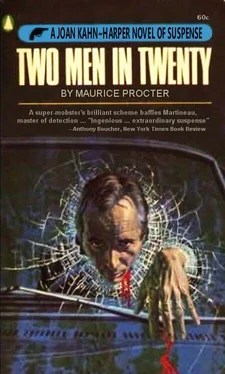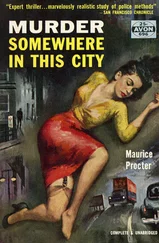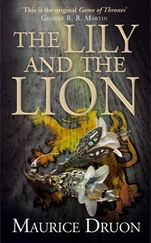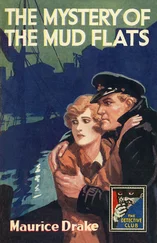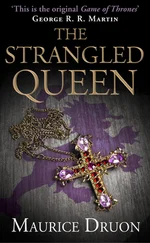Maurice Procter - Two men in twenty
Здесь есть возможность читать онлайн «Maurice Procter - Two men in twenty» весь текст электронной книги совершенно бесплатно (целиком полную версию без сокращений). В некоторых случаях можно слушать аудио, скачать через торрент в формате fb2 и присутствует краткое содержание. Год выпуска: 1963, Издательство: London : Hutchinson, Жанр: Полицейский детектив, на английском языке. Описание произведения, (предисловие) а так же отзывы посетителей доступны на портале библиотеки ЛибКат.
- Название:Two men in twenty
- Автор:
- Издательство:London : Hutchinson
- Жанр:
- Год:1963
- ISBN:нет данных
- Рейтинг книги:4 / 5. Голосов: 1
-
Избранное:Добавить в избранное
- Отзывы:
-
Ваша оценка:
- 80
- 1
- 2
- 3
- 4
- 5
Two men in twenty: краткое содержание, описание и аннотация
Предлагаем к чтению аннотацию, описание, краткое содержание или предисловие (зависит от того, что написал сам автор книги «Two men in twenty»). Если вы не нашли необходимую информацию о книге — напишите в комментариях, мы постараемся отыскать её.
Two men in twenty — читать онлайн бесплатно полную книгу (весь текст) целиком
Ниже представлен текст книги, разбитый по страницам. Система сохранения места последней прочитанной страницы, позволяет с удобством читать онлайн бесплатно книгу «Two men in twenty», без необходимости каждый раз заново искать на чём Вы остановились. Поставьте закладку, и сможете в любой момент перейти на страницу, на которой закончили чтение.
Интервал:
Закладка:
'So she died,' Martineau said. He consulted the Registrar of Births, Marriages and Deaths, and received confirmation of this, together with the date of death.
'So who got the property?' he asked, and added: 'There might be a will at Somerset House.'
The Metropolitan Police were consulted, and a C.I.D. man went to Somerset House in the Strand and read the will of Doris Baker of Granchester. The information he supplied to Martineau was that the property known as No. 11 Grange Gardens, and all its contents, had been left to a Doreen Baker, and the adjacent properties Nos. 20 and 22 Naylor Street had been left to a Florence Baker. The will was twenty years old, but had only recently been executed.
Twenty-four hours after the receipt of this information came a report from Scotland Yard. Officers asking questions about Howard Cain in the Caledonian Road area had learned that his household there consisted of a good-looking woman who was thought to be his wife, and another woman, also good looking, who was thought to be her younger sister. It was believed that the sister's name was Flo.
Coming from London, where people sometimes do not even speak to neighbours whom they have known by sight for years, the last item of news was regarded as a piece of pure luck. Martineau started another inquiry by the Metro, to ascertain if and when Howard Cain had married a Doreen Baker, but in his own mind he was certain. 'That mob might be bedded down in Naylor Street at this very moment,' he said. 'What a lovely set-up. A house in this town all ready for them to run to, when they thought London was getting a bit too warm, and another pair as a second string in case they had to make a quick move.'
So, within twenty-four hours of the exodus from Grange Gardens, the police were aware of a link between that place and Naylor Street. And one day after that, while Howie Cain was deciding that he ought to change his car, they became morally certain that his wife's name had been Doreen Baker and that his sister-in-law's name was Florence Baker.
' If they're at Naylor Street,' Martineau surmised, 'they'll be there for a few days at least. Sunday's a bad day for casing a place. Not enough people about. We'll leave it until tomorrow.'
* * * * *
Ned France had given up his room in London when he moved to Granchester. In the following weeks and months he returned several times, but not to the old place. On the Sunday in April when he returned with Cain and his women he went and booked a room at a quiet hotel in Sussex Gardens.
After leaving the hotel he caught a bus in the Edgware Road. He alighted on Regent Street, and then he strolled around looking at car showrooms. His general uneasiness about affairs in Granchester had recently come to include a dislike of the city's railway stations and bus termini. He wanted a car of his own, and he had no intention of buying it from a man like Archie Ransom. After moving from showroom to showroom for an hour he had a meal and a drink, and went home to bed.
On Monday morning he went to one of his three safe-deposit boxes and put in fifteen hundred pounds. This sum raised his hidden assets to nearly eleven thousand pounds. When he left the bank he still had eight hundred pounds in fivers in his pockets, and this was enough to buy a small car and still have some ready cash for emergencies.
There was nothing showy about the car he chose. It was an olive-green Morris 1000 in excellent mechanical condition, and he surmised that it would get him along at eighty miles an hour when he needed to hurry. He drove the car to Granchester at a moderate pace, making himself familiar with it, and only giving it full throttle once or twice to see what it would do.
In Granchester, not far from Naylor Street, he stopped at a new filling station for petrol. A man who looked like the proprietor stood near while the tank was filled by a youth. France asked this man about garages to let.
The man considered him, and the car. 'You might as well be asking for the moon,' he said. 'I have a bit of ground at the back. You can leave it there for thirty bob a week till you find a garage.'
France did not want to seem to be too easy in matters of money. 'Thirty bob for a bit of spare ground?' he queried.
'All right then. A quid a week, payable in advance.'
France agreed to this. He paid one pound and left the car behind the filling station. He walked to Naylor Street, feeling safer now that he had transport. He had no intention of telling anybody that he had bought the car. Everybody at 22 Naylor Street would assume that he had returned from London by rail. They all knew that he had been to London for financial reasons. Each one had his own way of safeguarding his money. No one confided his method to another.
* * * * *
On Monday morning Chief Inspector Martineau went to look at Naylor Street. He knew the district well, having served around there as a young constable, and he knew before he went that the street would not give anything like enough cover for close observation. He merely hoped that his men would be able to watch front doors and back doors from a distance, and report movements.
From Churlham Road he looked at Naylor Street and saw that the even numbers were on the right-hand side. By standing at the corner on the left-hand side he was able to count doors and pick out 20 and 22. He turned his back on Naylor Street and looked at the shops on the other side of Churlham Road. He saw that old Otto Neubaur was still in business as a pork butcher at the shop on the corner. Otto had always lived in the flat above the shop, and the curtains were still there. Well, it was a bit much to ask a man to let policemen sit in his front room and spy on the neighbours.
Next to Otto's place was a small Co-operative grocery of the old-fashioned sort, and there were no curtains in the upper windows. Well, a Co-op manager would have no objection to the police using a storeroom as an observation post. The Co-ops had suffered enough from the XXC mob in all conscience.
Martineau crossed the road and stood beneath the Co-op upstairs windows which was nearest the corner. It was no use. 20 and 22 Naylor Street could not be seen from there. In Churlham Road itself Otto's was the only possible lookout post. Martineau shrugged. A man could only try. He entered the pork butcher's shop.
Otto was serving a woman customer, and he did not look up when the detective's tall, wide frame filled his doorway. From the doorway it could be seen that he was not so spry nowadays: he moved heavily, attending to the woman's wants without much interest. The only things foreign about Otto were his name and his ancestry. He had been born in England, and he had always lived above the shop, which had been kept by his father before him.
The woman paid her dues, and Otto threw the money carelessly into a counter drawer. Evidently his ideas of modernity had never risen as high as a cash till, and there was not a bacon-cutting machine in sight. As the woman departed, he rested his knuckles on the counter and looked at Martineau without recognition.
'Are the sausages here as good as they used to be?' the policeman asked.
This challenge made Otto throw back his head and raise his eyebrows. 'Harry, lad!' he exclaimed, putting out his hand and smiling broadly. 'In the flesh and as cheeky as ever. I thought you'd forgot all your old friends.'
'Nothing of the kind, and I'm here to prove it. It's just that I'm an awfully busy fellow.'
'Ah, I know,' said Otto, shrewd now but no less friendly. 'I'll bet you want something. That's why you're here. You want some real special sausages for a party? Some of those little 'uns I make to order?'
Martineau sighed. 'I wish it was as simple as that. I need to have a policeman watching Naylor Street, and this window of yours upstairs is the only one which will do. I know it's a lot to ask, but. .'
Читать дальшеИнтервал:
Закладка:
Похожие книги на «Two men in twenty»
Представляем Вашему вниманию похожие книги на «Two men in twenty» списком для выбора. Мы отобрали схожую по названию и смыслу литературу в надежде предоставить читателям больше вариантов отыскать новые, интересные, ещё непрочитанные произведения.
Обсуждение, отзывы о книге «Two men in twenty» и просто собственные мнения читателей. Оставьте ваши комментарии, напишите, что Вы думаете о произведении, его смысле или главных героях. Укажите что конкретно понравилось, а что нет, и почему Вы так считаете.
